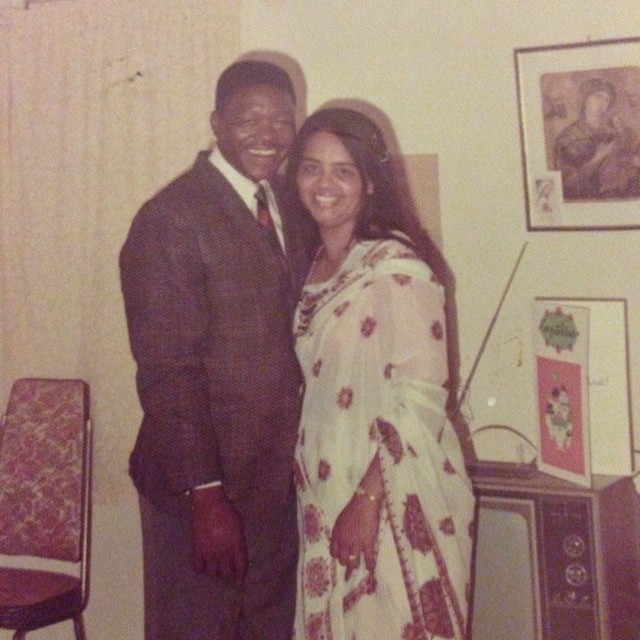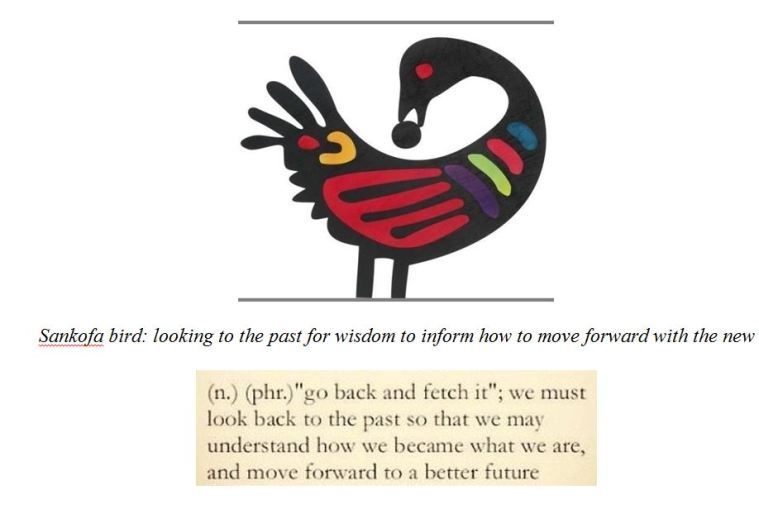Audrey T. Williams is an Oral Storyteller, Activist, Writer, and Poet based in Oakland, California.
She holds an MFA from California College of the Arts and is on the Board of Directors at the Oakland Asian Cultural Center.
Her first poetry chapbook, Where I Dream, is available for purchase at Alley Cats Bookstore.
She writes, performs, and podcasts creative nonfiction (CNF) in the form of personal narratives, and is also working on short stories of Speculative Fiction and AfroFuturism.
Current projects focus on healing through storytelling, social justice, and growing up in rural North Carolina in a loving, multi-cultural family with a Black American father and South Asian (Anglo-Indian/Burmese) mother.
The working title for her memoir-in-progress is:
Of Chutney and Chitlins: A Hybrid Family Memoir

- Audrey’s parents in Santa Monica, 1973
Follow Audrey’s adventures @
Twitter (@ancestrlfutures)
Instagram (@audthentic_stories)
Email: audthentic@gmail.com
Audrey’s storytelling combines photographs and personal narratives from her ancestral history with her own life experiences to explore unique perspectives on healing today’s social issues, such as:
-
moving toward solutions for today’s social justice concerns by understanding the root causes of racial injustice stemming from historical inequities
-
building resilience in multi-racial youth via empowered identity-formation that addresses intersections of race, ethnicity, culture, religion, and class

Social Justice Activism
The social justice work of Neighbors 4 Racial Justice (N4RJ) in Oakland has created opportunities for dialogue on the intersection of race and class in Oakland neighborhoods, and how this reflects America’s ongoing lack of true racial integration.
Although legally-enforced public segregation was abolished 52 years ago in 1964, the often unconscious, conditioned biases passed down as America’s legacy remain.
This residue of America’s historical injustices and inherited mindsets on discrimination leads to “social segregation” that continues today, especially in spaces that have historically been predominantly mono-racial communities.
This same social segregation that prevails in certain communities will continue to be reflected in social media platforms and online forums unless it is actively disrupted.
Neighbors 4 Racial Justice is working to end racial injustice, starting in our own backyards.
-
NPR audio about N4RJ working with Nextdoor to stop racial profiling on their social media platform
-
East Bay Express video interview: Unwelcome at Home: Black Oaklanders on Racial Profiling
-
SF Chronicle article
-
Harper’s Magazine
-
KQED’s So Well Spoken with Joshua Johnson
“Racial issues are hard enough to handle in the real world, what happens when those conflicts heat up online? In one Oakland neighborhood, residents have been confronting assumptions and biases through social media sites. Some residents of color say it has exposed unspoken prejudices about just who is considered threatening. Others say it’s been blown out of proportion at a time when fighting crime is a pressing need. We’ll meet two of the neighbors involved in the conflict, and consider ways of resolving the tensions that social media can amplify when race is in the mix.”
